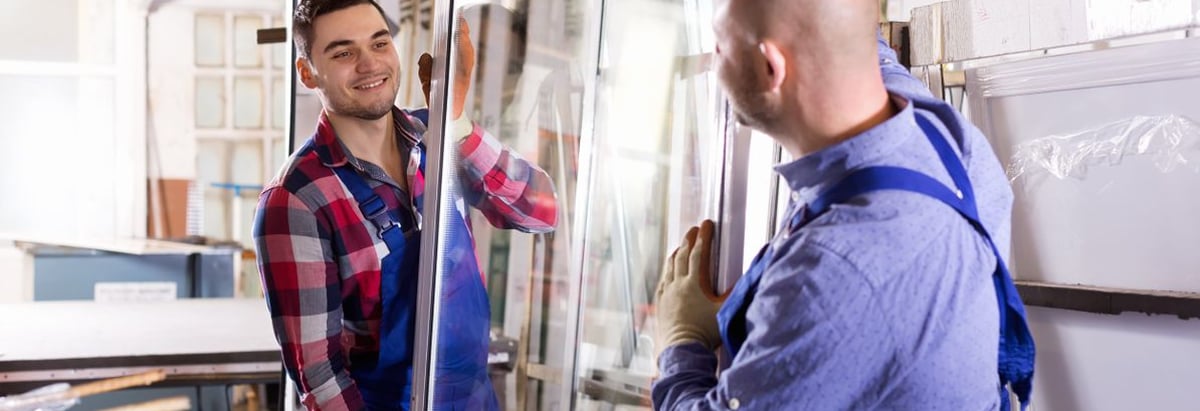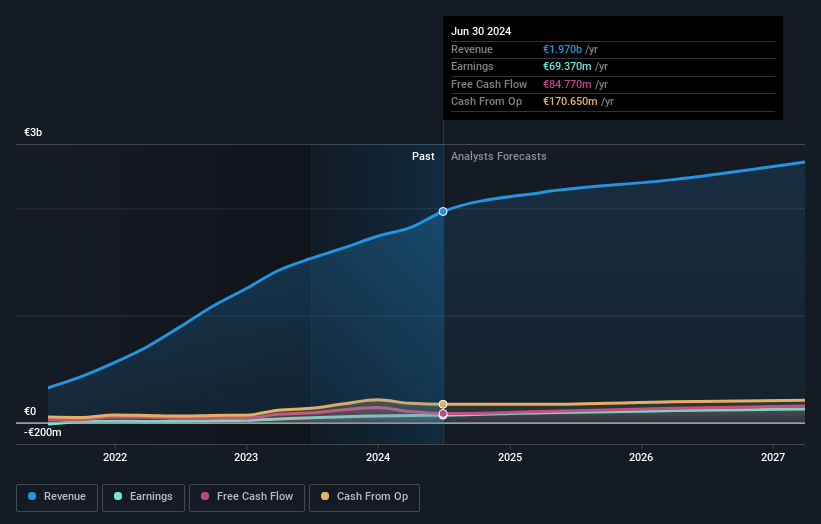- Austria
- /
- Commercial Services
- /
- WBAG:DOC
Institutional investors are DO & CO Aktiengesellschaft's (VIE:DOC) biggest bettors and were rewarded after last week's €64m market cap gain

Key Insights
- Significantly high institutional ownership implies DO & CO's stock price is sensitive to their trading actions
- A total of 6 investors have a majority stake in the company with 51% ownership
- Analyst forecasts along with ownership data serve to give a strong idea about prospects for a business
Every investor in DO & CO Aktiengesellschaft (VIE:DOC) should be aware of the most powerful shareholder groups. And the group that holds the biggest piece of the pie are institutions with 39% ownership. Put another way, the group faces the maximum upside potential (or downside risk).
And last week, institutional investors ended up benefitting the most after the company hit €1.7b in market cap. The gains from last week would have further boosted the one-year return to shareholders which currently stand at 26%.
In the chart below, we zoom in on the different ownership groups of DO & CO.
Check out our latest analysis for DO & CO

What Does The Institutional Ownership Tell Us About DO & CO?
Institutional investors commonly compare their own returns to the returns of a commonly followed index. So they generally do consider buying larger companies that are included in the relevant benchmark index.
DO & CO already has institutions on the share registry. Indeed, they own a respectable stake in the company. This suggests some credibility amongst professional investors. But we can't rely on that fact alone since institutions make bad investments sometimes, just like everyone does. If multiple institutions change their view on a stock at the same time, you could see the share price drop fast. It's therefore worth looking at DO & CO's earnings history below. Of course, the future is what really matters.

Hedge funds don't have many shares in DO & CO. The company's largest shareholder is Attila Dogudan Privatstiftung, with ownership of 30%. Meanwhile, the second and third largest shareholders, hold 7.1% and 4.6%, of the shares outstanding, respectively.
On further inspection, we found that more than half the company's shares are owned by the top 6 shareholders, suggesting that the interests of the larger shareholders are balanced out to an extent by the smaller ones.
While it makes sense to study institutional ownership data for a company, it also makes sense to study analyst sentiments to know which way the wind is blowing. There are plenty of analysts covering the stock, so it might be worth seeing what they are forecasting, too.
Insider Ownership Of DO & CO
The definition of an insider can differ slightly between different countries, but members of the board of directors always count. Management ultimately answers to the board. However, it is not uncommon for managers to be executive board members, especially if they are a founder or the CEO.
I generally consider insider ownership to be a good thing. However, on some occasions it makes it more difficult for other shareholders to hold the board accountable for decisions.
We note our data does not show any board members holding shares, personally. It is unusual not to have at least some personal holdings by board members, so our data might be flawed. A good next step would be to check how much the CEO is paid.
General Public Ownership
With a 31% ownership, the general public, mostly comprising of individual investors, have some degree of sway over DO & CO. This size of ownership, while considerable, may not be enough to change company policy if the decision is not in sync with other large shareholders.
Private Company Ownership
It seems that Private Companies own 30%, of the DO & CO stock. Private companies may be related parties. Sometimes insiders have an interest in a public company through a holding in a private company, rather than in their own capacity as an individual. While it's hard to draw any broad stroke conclusions, it is worth noting as an area for further research.
Next Steps:
While it is well worth considering the different groups that own a company, there are other factors that are even more important. Consider risks, for instance. Every company has them, and we've spotted 2 warning signs for DO & CO you should know about.
Ultimately the future is most important. You can access this free report on analyst forecasts for the company.
NB: Figures in this article are calculated using data from the last twelve months, which refer to the 12-month period ending on the last date of the month the financial statement is dated. This may not be consistent with full year annual report figures.
New: Manage All Your Stock Portfolios in One Place
We've created the ultimate portfolio companion for stock investors, and it's free.
• Connect an unlimited number of Portfolios and see your total in one currency
• Be alerted to new Warning Signs or Risks via email or mobile
• Track the Fair Value of your stocks
Have feedback on this article? Concerned about the content? Get in touch with us directly. Alternatively, email editorial-team (at) simplywallst.com.
This article by Simply Wall St is general in nature. We provide commentary based on historical data and analyst forecasts only using an unbiased methodology and our articles are not intended to be financial advice. It does not constitute a recommendation to buy or sell any stock, and does not take account of your objectives, or your financial situation. We aim to bring you long-term focused analysis driven by fundamental data. Note that our analysis may not factor in the latest price-sensitive company announcements or qualitative material. Simply Wall St has no position in any stocks mentioned.
About WBAG:DOC
DO & CO
Provides catering services in Austria, Turkey, Great Britain, the United States, Spain, Germany, and internationally.
Flawless balance sheet with solid track record.


